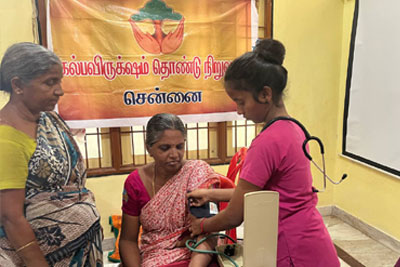Gastro-Intestinal Cancer
The Gastrointestinal (GI) system is a vast system extending from the mouth to anus along with organs like liver, gall bladder, pancreas etc. The GI tract is lined by a layer of epithelial cells which undergo rapid turnover, numerous cells are shed every day and regenerated continuously, this combined with constant exposure to toxins in the diet leads to the formation of defective cells which divide in an uncontrolled manner leading to the development of cancer. The GI tract consists of the following structures
- Oesophagus
- Stomach
- Duodenum
- Small Intestine
- Large Intestine
- Rectum
- Liver
- Gall Bladder
- Pancreas
Site wise in India, colorectum is the most common site for GI tract malignancy. This is followed by the stomach. A special mention should be made about Gall Bladder, which is highly common in the northern parts of the country and is linked to a higher incidence of gall stones. The factors influencing the incidence of GI malignancy are varied. Some of the following are listed below
- Obesity
- Ingestion of caustics (Oesophagus)
- Pre-existing conditions like Tylosis, Achalasia cardia, Chronic gastritis
- H pylori infection (Gastric cancer)
- Gall Stones
- Red meat consumption
- Family history
- Chemical exposure
GI cancer may present in various ways depending on the site affected, for example
- Oesophageal cancers present with swallowing difficulty and pain
- Gastric cancers present with lack of appetite, persistent vomiting, black stools, weight loss
- Liver and biliary cancers present with jaundice and weight loss
- Intestinal cancers present with anaemia, bleeding in stools, intestinal obstruction etc.
- Unexplained weight loss and fatigue is a common feature of all GI malignancies
Detecting GI cancers early result in better survival but unfortunately, screening is not available for all GI cancers. Most of them are picked up only after the patient has developed symptoms, some cancers like liver-based tumours become symptomatic only at a very advanced stage. In patients with a strong family history of colorectal cancer or a combination of colon, breast, gynaecological cancers it is advisable to have routine screening colonoscopy annually from the age of 18 to 20 years, unlike for general population in whom colonoscopy is recommended every 5 years starting from the age of 50 years. A faecal occult blood test also is very sensitive in identifying patients who need a colonoscopy to rule out polyps in the colon.

Treatment for GI cancers is primarily using a combination of surgery and chemotherapy. Radiation therapy plays a very important role in the management of oesophageal cancers and rectal cancers. Some types of oesophageal cancers may be completely cured by radical chemoradiation alone, in patients having tumours not amenable to radiation alone, a combination of radiation followed by surgery helps in achieving a cure. In rectal cancers, radiation along with chemotherapy is the first line of management, following this surgery is done to achieve complete cure.
Patients with a strong family history of colorectal cancers should consult their oncologist and get themselves screened for presence of genetic mutations like APC, MSI, PTEN, STK 11 etc. In people harbouring APC or MSI mutations, it may be advisable to undergo a prophylactic colon resection to prevent the occurrence of cancer. This decision is to be made in consultation with your oncologist.
It is possible to reduce the risk of developing GI cancer by making some lifestyle changes like working out and avoiding high-calorie food, red meat, processed food, alcohol etc. in case of any persistent symptoms consult your physician and get yourself screened for the presence of cancer.
The Oncology team under the able guidance of Dr. M. Banupriya is trained to identify and treat all types of GI malignancies with special emphasis on patient wellness and quality of life.
Authored By Dr. M. Banupriya
MBBS, MDRT, FIAMS, Ph.D, CCEPC (Palliative care), Consultant Oncologist













